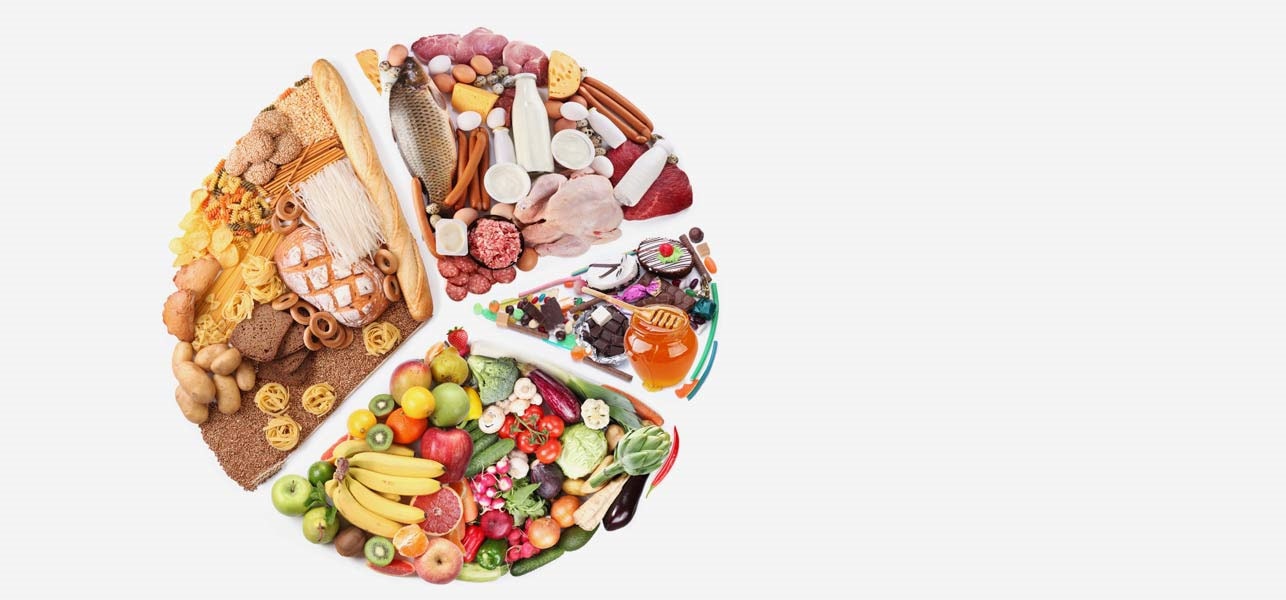- Your cart is empty
- Continue Shopping
Protein-Rich Foods You Should Include In Your Diet

Proteins are important nutrient components that are made of essential and non-essential amino acids that provide energy to the body. Proteins control many important metabolic functions in the body and are fundamental components of all living cells.
Proteins are essential building blocks that contribute to the growth and development of muscles, bones, ligaments, and tissues. Proteins help fight infections by boosting the immune system. They are also required to maintain bodily functions such as digestion, metabolism, and circulation. Our body needs these micronutrients to produce enzymes, hormones, and other body chemicals. Hemoglobin helps in the supply of oxygen to every part of the body. Protein deficiency can lead to loss of muscle tissues, a weak heart, weak immunity, and even death in extreme cases.
The Recommended Dietary Allowance for proteins is 0.8 grams per kilogram for adults. Pregnant and lactating women require 70 grams of proteins per day. Active and elderly people require more than the RDA for adults i.e. more than 0.8 grams per kilogram.
Sources Of High-Protein Foods
Our body gets proteins from the food we eat. There are a number of food sources that provide proteins in ample amounts. These choices include meats, dairy products, fruits, vegetables, and nuts.
- Animal sources and dairy products have the highest amount of proteins. They contain all the essential amino acids required to make new proteins in the body. Animal proteins include meat, eggs, poultry, seafood, and dairy products. Dairy products that contain proteins include milk, cheese, paneer, and yogurt.
- Vegetables, fruits, and legumes are other sources of protein. They are not perfect sources of proteins as they lack one or more amino acids that are needed for the creation of proteins.

- The nutrients present in fruits are essential for maintaining healthy skin and hair. You can consume fruit in its raw form or can create a variety of preparations like fruit salads, concoctions of juices, smoothies, milkshakes, and so on. Apart from having high levels of protein, fruits are also low in fats and high in fiber, which will keep you full for a longer period and prevent bloating.
- Supplement proteins are available in the form of protein powder, protein shakes, protein bars, and so on. These supplements are taken by bodybuilders to build the body mass by burning body fats during exercises.
1. Meat
Meat contains a significant amount of proteins. White or poultry meats are healthier than red meats because of their high content of lean proteins. Chicken is one of the most nutritious and versatile meats. Four ounces of chicken contains 32 grams of protein, with very low fat and cholesterol. Chicken is best nutritionally when boiled, roasted, and baked.
Dark meat, though good in proteins, contains a high amount of fats and can also raise cholesterol levels. 58 grams of chicken breasts contain 17 grams of protein and 37 grams of chicken thigh contain 9 grams of protein. For a high amount of protein, choose lean meats or opt for poultry or fish. Try and avoid frying meats like bacon, hot dog, or deep fried chicken as frying removes the protein content. Meat from organs like the liver or kidney contains too much sodium and fats which outweigh the benefit of the high protein foods.
2. Beans/Legumes
Beans and legumes are one of the best options when it comes to protein-rich foods and is considered the best protein sources for vegetarians. Legumes like peas, lentils, and beans like pinto, garbanzo, white, kidney, and soybeans, are all packed with protein. Beans are also loaded with dietary fiber and eight essential amino acids. Beans contain approximately 9 mg of protein per gram, and some varieties also contain 12g per 100 grams.
Black beans contain 7.5 grams of protein and are extremely low in fat with just 1 gram of fat. Soybean is a nice addition to lunch and salads and contains more than 11 grams of protein. Chickpeas contain 16 grams of protein per 100 grams. They are one of the best foods high in protein for vegetarians. Kidney beans provide 7.5 grams of protein per 100 grams. Like other beans, baked beans are high in proteins and offer 6 grams of protein per 100 grams.
3. Nuts
Nuts like cashews, almonds, and peanuts are high protein food. The highest amount of proteins is available in Brazil nuts. One ounce of Brazil nut is sufficient to fulfill the protein requirement for the day. Brazil nuts are rich in amino acids and omega-3 fatty acids that help in muscle development and prevent skin dryness. Almonds are nuts with a number of health benefits, including a high level of protein. ¼ cup of almonds contains 8 grams of protein.
Almonds have low fat content and are a great source of protein-rich food for vegetarians. Peanuts are a high source of protein as well with 8 grams of protein. Peanut butter is also a good source of proteins and provides us with 8 grams of protein per 30 grams. The only downside with protein is that it is high in fats, so add it to your diet in moderation.
4. Dairy Products
Dairy products such as milk, yogurt, cream, and cheese are important sources of protein. They also provide the body with essential minerals and vitamins. The calcium present in milk keeps the teeth and bones in a healthy condition and helps prevent osteoporosis and arthritis. Skimmed milk and low-fat dairy products are an even healthier options, especially for people who want to lose weight.
A half cup of low-fat cottage cheese or paneer contains 90 calories with 16 grams of protein. Low-fat Swiss cheese contains 8 grams of protein, parmesan cheese provides us with 10 grams of protein, and Romano cheese contains 9 grams of protein per 100 grams.
5. Seafood
Seafood is a very good source of protein and is low in fats. A three-ounce serving of salmon contains 20 grams of protein and 5 grams of fat. Salmon is also packed with omega 3 and 6 essential fatty acids which are needed for healthy living. Tuna provides 24 grams of protein per 100 grams, and codfish provides 20 grams of protein per 100 grams.
6. Guavas
Guavas are packed with 3 grams of proteins. Apart from protein, they also contain calcium and a high amount of Vitamin C.
7. Avocados
Avocados are one of the most nutritious foods and contain a high amount of protein. This fruit provides 5 grams of protein per 8 ounces. This is a great protein food for vegetarians.
8. Asparagus
This lanky green vegetable is very versatile and can be boiled, grilled, steamed, and fried. Asparagus is a nutritionally dense vegetable. A half cup of cooked asparagus contains 2 grams of proteins. So, add this super veggie to your diet as early as possible.
9. Cauliflower
Cauliflower contains a good 3gms of proteins per serving. Cauliflower is also a good source of Vitamin K and provides us with an anti-inflammatory benefit that serves a number of bodily functions. Cauliflower is rich in fiber and is beneficial for the digestive tract. Cauliflower can be made as a tasty curry or soup and can be eaten as a mashed or steamed dish.
10. Dates
Dates are sweet and delicious fruits that grow on date palm trees. Dates are the best sources of protein, and a single date contains 0.220 grams of protein. 100 grams of dates will provide you with 2.50 grams of protein. Dates contain a number of health benefits and are eaten as both soft and dried fruits.
11. Broccoli
Broccoli is low in fat, high in protein, and contains essential nutrients like Vitamin A, Vitamin B, Vitamin C, iron, and dietary fiber. ½ cup of broccoli provides 2 grams of proteins. Broccoli can be prepared in a number of ways which include roasting and grilling broccoli, adding them to salads, and preparing a curry.
12. Spinach
Our diet is incomplete without Popeye’s favorite food. 1 cup of cooked and boiled spinach contains 5 grams of proteins. Spinach is also abundant in Vitamin A, Vitamin B, iron, dietary fiber, and all of the B-complex vitamins.
13. Brussels Sprouts
Brussels sprouts come packed with vitamins, minerals, fiber, and proteins. 1 cup cooked and boiled Brussels sprouts come with 4 grams of proteins. These sprouts also contain some essential organic compounds which have potent anti-cancer properties.
14. Sweet Corn
A serving of sweet corn contains 3mg of protein and is an excellent addition to pizza, pasta, soups, and various other dishes. But sweet corn kernels are sweet and juicy and are best prepared simply with just a little butter and a dash of lime. Sweet corn is also a good source of antioxidants and contains ample amounts of B-complex vitamins like thiamine, niacin, folate, and pantothenic acids.
15. Egg Whites
Eggs are an excellent source of protein, particularly egg whites. Egg whites are low in cholesterol and high in protein. Egg whites are also low in fat which makes them the perfect food for a healthy and nutritious breakfast. One cup of egg whites contains 26 grams of protein. This will also provide you with energy and essential amino acids. Adults are advised to eat one egg daily.
16. Apricots
These beautiful orange-colored fruits are rich in fiber and beta-carotene which make them ideal fruits for summers. One fresh apricot contains approximately 0.49 grams of protein. Raw apricots prepared in slices yield 2.30 grams of protein in one serving. You can have fresh or dried apricots. Apricots also contain Vitamin A, which promotes good vision, antioxidants, and a high content of Vitamin C.
17. Tangerine
Tangerine is related to the citrus family and contains nutrients that provide a number of health benefits. Tangerines are also one of the best protein-rich fruits. One large tangerine fruit contains 1 gram of protein. When prepared in sections, it will give 1.23 grams of protein.
18. Coconut
Both coconut water and coconut pulp are highly nutritious. Coconut water offers an array of health benefits and is highly recommended, especially during the summer season. Do not throw away the shell after drinking the water as the soft pulp of the tender coconut is equally rich in proteins. The pulp tastes extremely delicious. You can either have it raw or add it to salads. Coconut milk is also rich in proteins and healthy fats.
19. Bananas
Bananas are one of the healthiest fruits and contain 4 grams of protein per 100 grams. Bananas are a must-have for breakfasts. You can eat them whole or make a milkshake. You can also prepare a curry with raw banana, and it tastes amazing. Bananas are also good for people who suffer from constipation problems. They are also rich in amino acids and can be used as face packs to treat dry skin.
20. Blueberries
Blueberries are high protein fruits that are also rich in vitamins and certain minerals. Blueberries are available in several forms canned, sweetened, unsweetened, raw, and syrup. Blueberries contain 0.50 grams of proteins, and 1 bowl of blueberries will yield 1.10 grams of proteins.
21. Tofu
Tofu is a great alternative to meat and is used in a variety of Indian dishes. 140 grams of tofu contains 11 grams of proteins. Apart from proteins, tofu is also rich in magnesium, iron, and other essential nutrients. Like other soy foods, tofu reduces heart diseases by lowering bad cholesterol and promoting good cholesterol.
22. Mangosteen
Mangosteen is mainly used for its therapeutic qualities. This unique purple colored fruit contains 0.5 grams of protein per 100 grams. 1 cup of mangosteen will yield 0.89 grams of proteins. Besides, it also has a high content of vitamin A and vitamin C as well as iron, calcium, and potassium. This fruit is a moderate source of B-complex vitamins such as thiamine, niacin, and folate.
23. Soy Milk
Soy milk is another great option for vegetarians to get a good dose of proteins. 8 ounces of soy milk contains 7 grams of proteins. Adding this super drink to your diet will provide you with recommended daily allowance of protein needed by an individual.
24. Figs
Figs are a healthy source of good-quality proteins and are consumed in both fresh and dried forms. A medium-sized ripe fig contains 0.38 grams of proteins and a 100-gram serving gives around 0.80 proteins.
25. Apples
Apples can be consumed in both raw and cooked form, with or without skin, and contain a range of health benefits. Two medium-sized apples give around 0.60 grams of protein. When served in slices with the skin, it yields 0.30 grams of proteins.
26. Peanut Butter
Two spoons of peanut butter and you are set for the day with 8gm of protein. The traditional toast can be flavored with this all time favorite, or the peanut butter can be added to protein shakes or smoothies. Either way, it’s a tasty vegetarian option to eat plenty of proteins.
27. Almonds
A handful of almonds is all you need to grab 6gm of protein. They can be added to salads and other dishes for extra flavor. Almonds also provide monounsaturated fats that are good for the heart.
28. Cottage Cheese
Each half cup of cottage cheese contains 13gm of proteins. It is a great non-expensive healthy food item. In addition to protein for muscles, cottage cheese contains calcium for good bones. You can combine it with vegetables or fruit to make it into a great dish. Other forms of cheese also have good amounts of protein. It is best taken in its low-fat version.
29. Hemp
Hemp is the next best product for those allergic to soy-based offerings, containing 3gm protein per serving. This plant derivative provides you with many essential amino acids that the body uses to build muscle. Hemp dairy products and hemp seeds contain fatty acids that greatly improve the immune system.
30. Whole Wheat Bread
Whole wheat bread is different from other refined bread in the way it is processed. Whole wheat bread and pasta varieties are high in proteins along with other beneficial effects on health. They can be made a part of any meal and teamed up with other food items for good taste.
A balanced diet includes proper portions of not just protein but should have a perfect proportion of vitamins, minerals, and carbohydrates too. Include at least some of the above mentioned foods in your diet which, when combined with other important nutrients, will yield positive and healthy results.
10 Experts Reveal Their Secrets On Best Protein-Rich Foods
To help our readers know more about protein-rich foods, we have conducted an expert roundup to give the best ideas. The insights we received from the eminent nutrition experts and dietitians are as stated below:
1. Natalie Jill
- Whey Protein: This could be mixed with water or unsweetened almond milk and drunk alone pre and post workout. Or, it can be blended into a smoothie with some fruit and nut butter as a great meal replacement. Whey protein is fast absorbing, great for pre and post workout, and also helps to suppress appetite!
- Greek Yogurt: Greek yogurt is a favorite of mine! Loaded with protein, it has lesser sugar than traditional yogurts. Its thick texture makes it very rich-tasting. I love to mix mine with mixed berries and a few sprinkled sliced almonds
- Turkey Bacon: Nitrate-free, organic and free range. Rich in protein, it has a strong, yummy flavor and crunch. It can be chopped up and added to salads for an extra punch. Another favorite way to eat this is wrapped around grilled shrimp.
2. Cynthia Pasquella
- Hemp: Hemp is considered to be one of nature’s most perfect foods. The protein found in hemp, along with fiber, helps slow digestion, so you don’t get a huge spike in your blood sugar. It will also keep you feeling full longer. Hemp protein is considered to be a complete protein which means it contains all the nine essential amino acids needed to meet our body’s needs.
- Quinoa: Like hemp, quinoa is also considered to be a complete protein. In just one cup of cooked quinoa, you can get more than 8 grams of protein! Quinoa also contains more protein than rice, millet, and wheat.
- Beans: In just more than one cup of beans, you can get about the same amount of protein as you would in a piece of chicken. Beans have what meat lacks – they contain phytochemicals, compounds only found in plants. They are high in antioxidants, a type of phytochemical, that prevent free radicals in the body.
3. Christine
- Omega-3 cafe free egg white
- Chilean sea bass
- Free range smoked turkey – thinly sliced at my favorite deli (Bristol Farms)
- Soy milk
4. Joy McCarthy
- Fish, chicken, and eggs
- Plant-based proteins: Chia, Quinoa, hemp seeds, and leafy green
5. Amie Valpone
- Chia seeds
- Flax seeds
- Hemp seeds
6. Danielle Omar
The protein foods I most commonly recommend to my clients are
- Greek yogurt
- Lentils
- Eggs!
7. Carolyn Scott
- Spinach
- Quinoa
- Tempeh
8. Lisa Defazio
Animal protein sources are complete proteins and will be used more quickly and efficiently by the body. My top picks are:
- Eggs: They are easy to prepare, inexpensive, and versatile; you can eat them as a snack or meal, make veggie omelets, hard boil an egg for a snack, throw hard boiled eggs in a green salad, and my favorite, egg salad.
- Tuna: Cheap and versatile. I mix a can of water-packed tuna with light mayo, diced celery, dill, and red onion; keep it in the refrigerator for a light snack or lunch.
- Sliced Turkey Breast: Easy and quick, no cooking needed. Great for a quick lunch or snack!
Top vegetarian protein sources
- Nuts: They are satisfying; contain healthy fats, great for snacks and in salads.
- Beans: Toss in salads, I love hummus as a sandwich spread and a veggie dip.
9. Rosanna Davison
The three protein-rich foods that I recommend to clients are all plant-based because current research shows that a whole food plant-based diet is the best protection against lifestyle diseases. Many plant foods also contain fiber, omega-3 fats, antioxidants, and other essential nutrients that animal protein foods lack and they don’t contain cholesterol or saturated fat.
- I suggest to my clients that they eat quinoa regularly, which is a great source of complete protein, plus fiber, iron, and magnesium. It is extremely versatile.
- Lentils are my second choice as they also contain all essential amino acids, important minerals, and fiber.
- Hemp seeds are my third favorite source of protein as they have a perfect ratio of omega-6 to omega-3 fats and are a highly bioavailable source of complete protein.
10. Matt Fitzgerald
I’m not a big fan of “best” lists, because I believe that one of the best things we can do as eaters is to eat diversely. So I will give you a diverse selection of healthy, protein-rich foods I like:
- Yogurt (dairy)
- Quinoa (grain)
- Lamb (meat)
I hope these tips will really help you include the best high-protein foods in your diet to meet the daily protein requirements of your body. So, whose tips are you going to follow? Feel free to share your thoughts and queries if any in the comment section.




